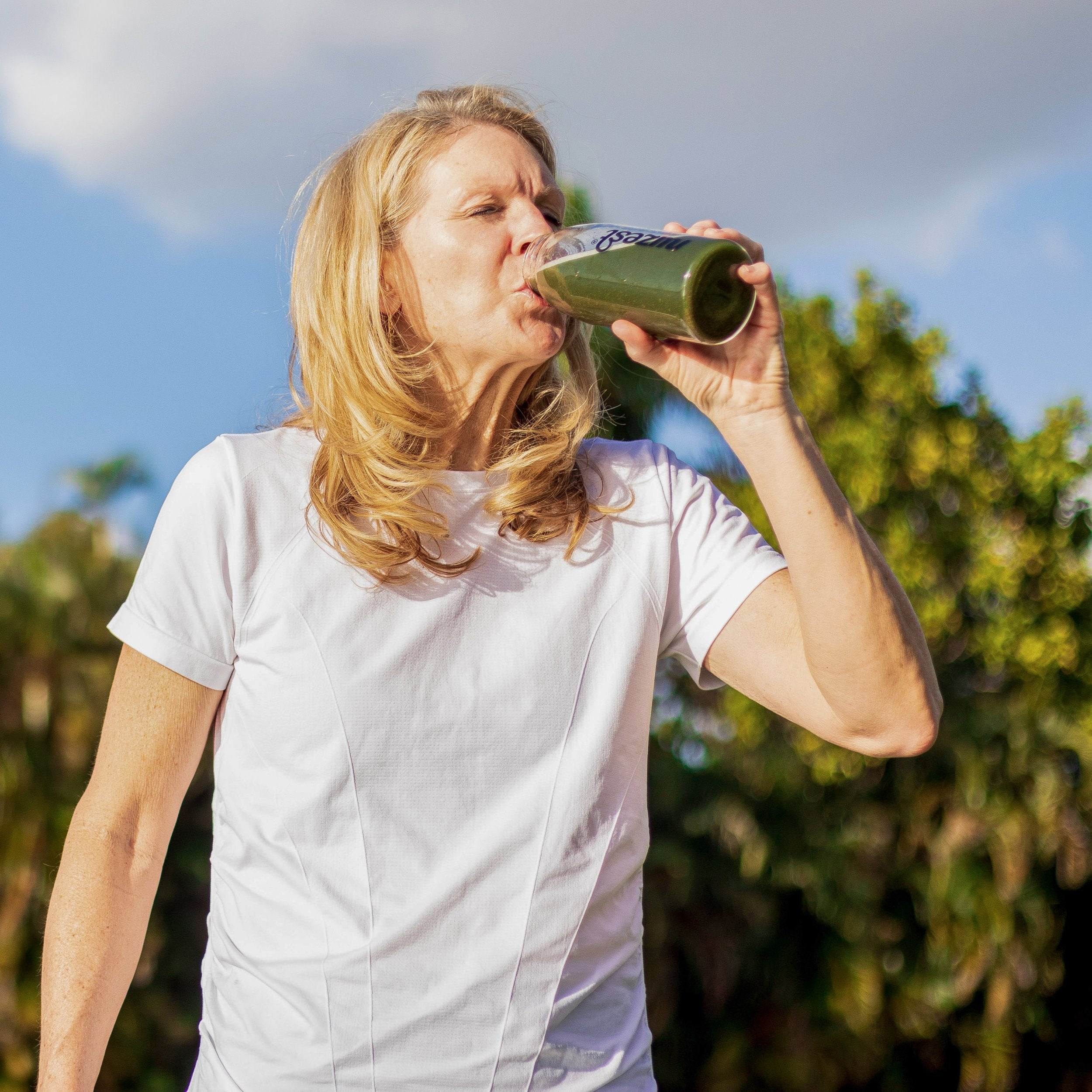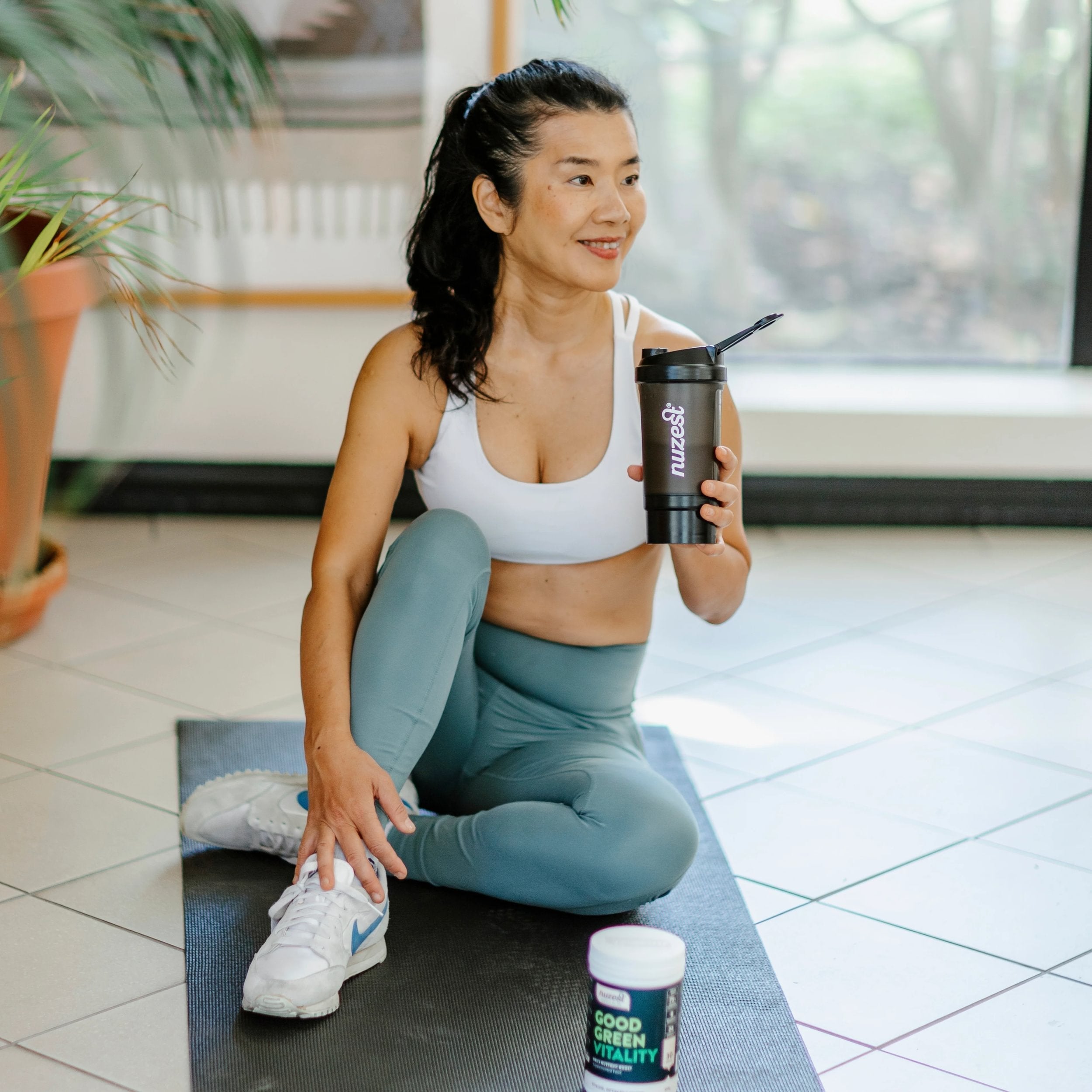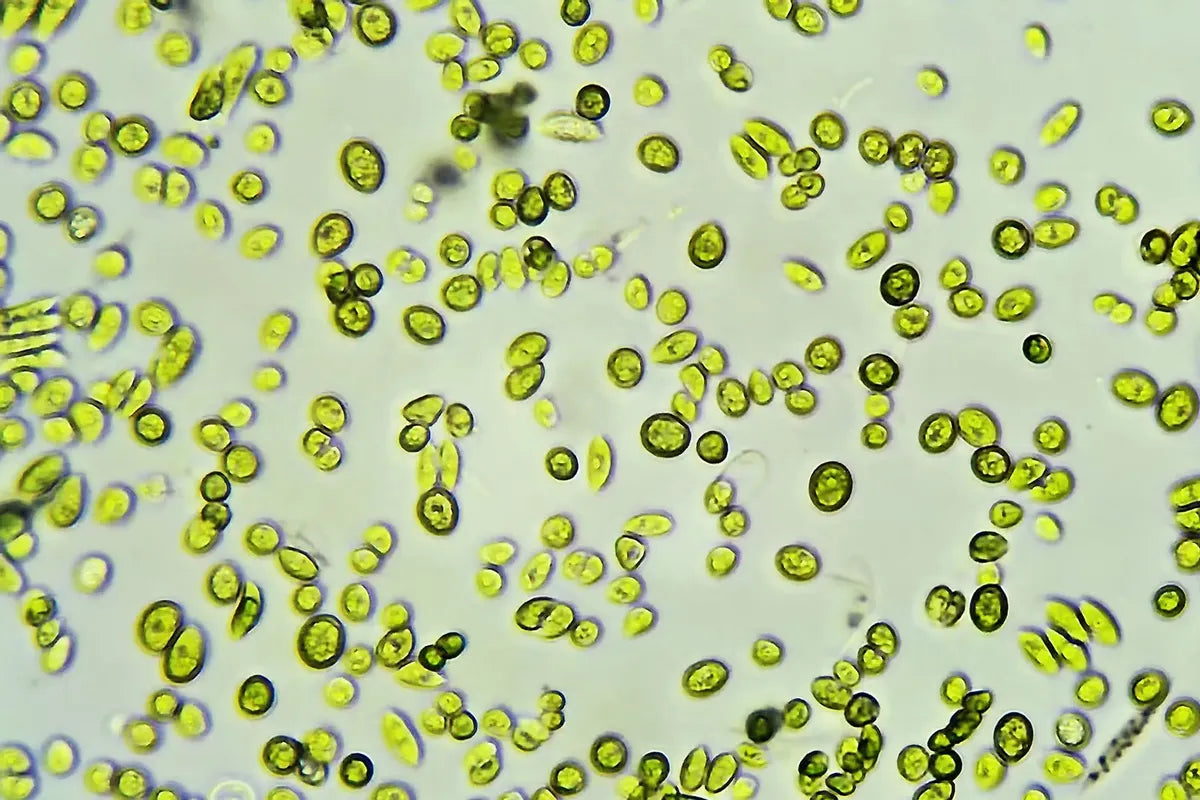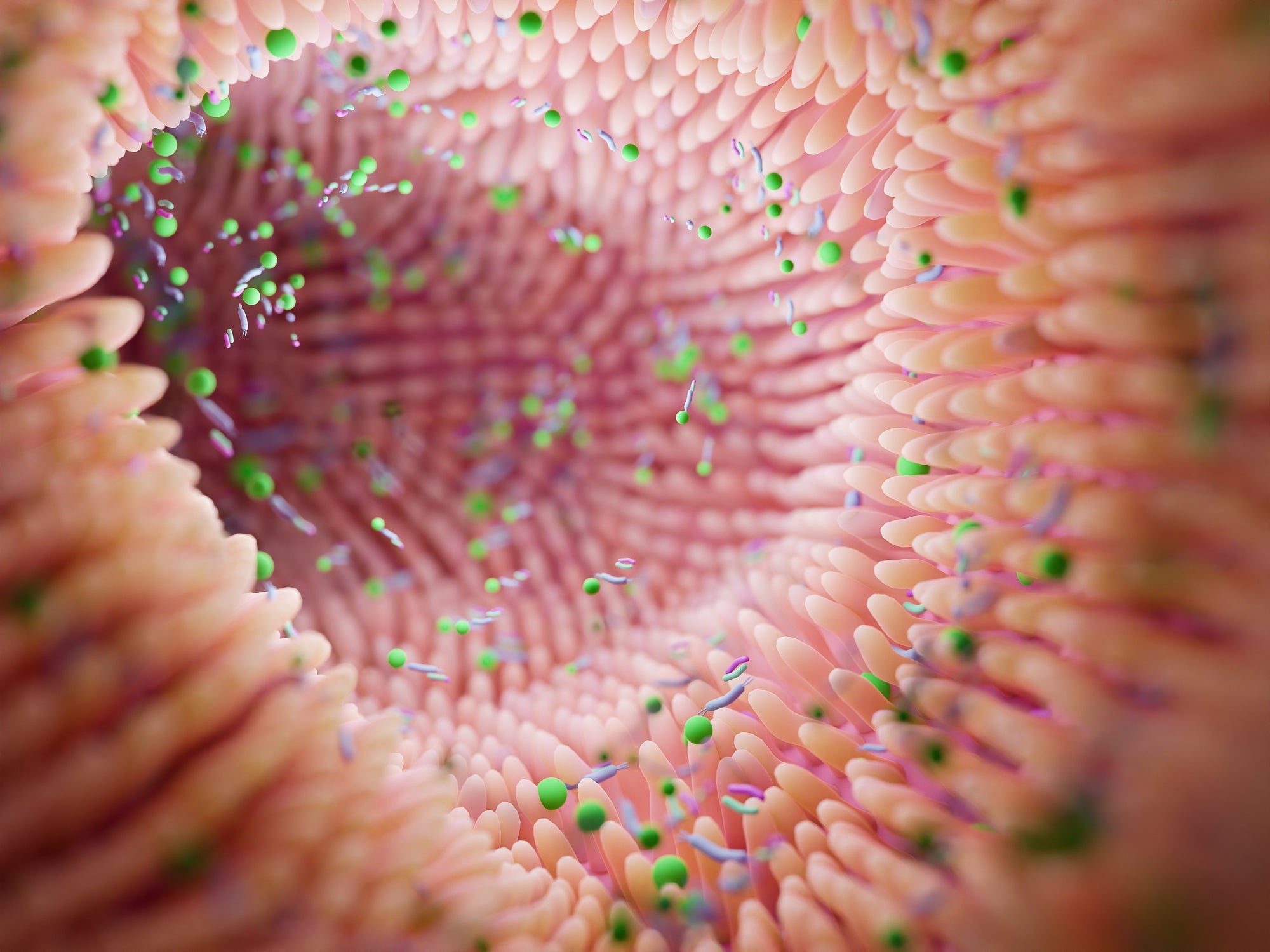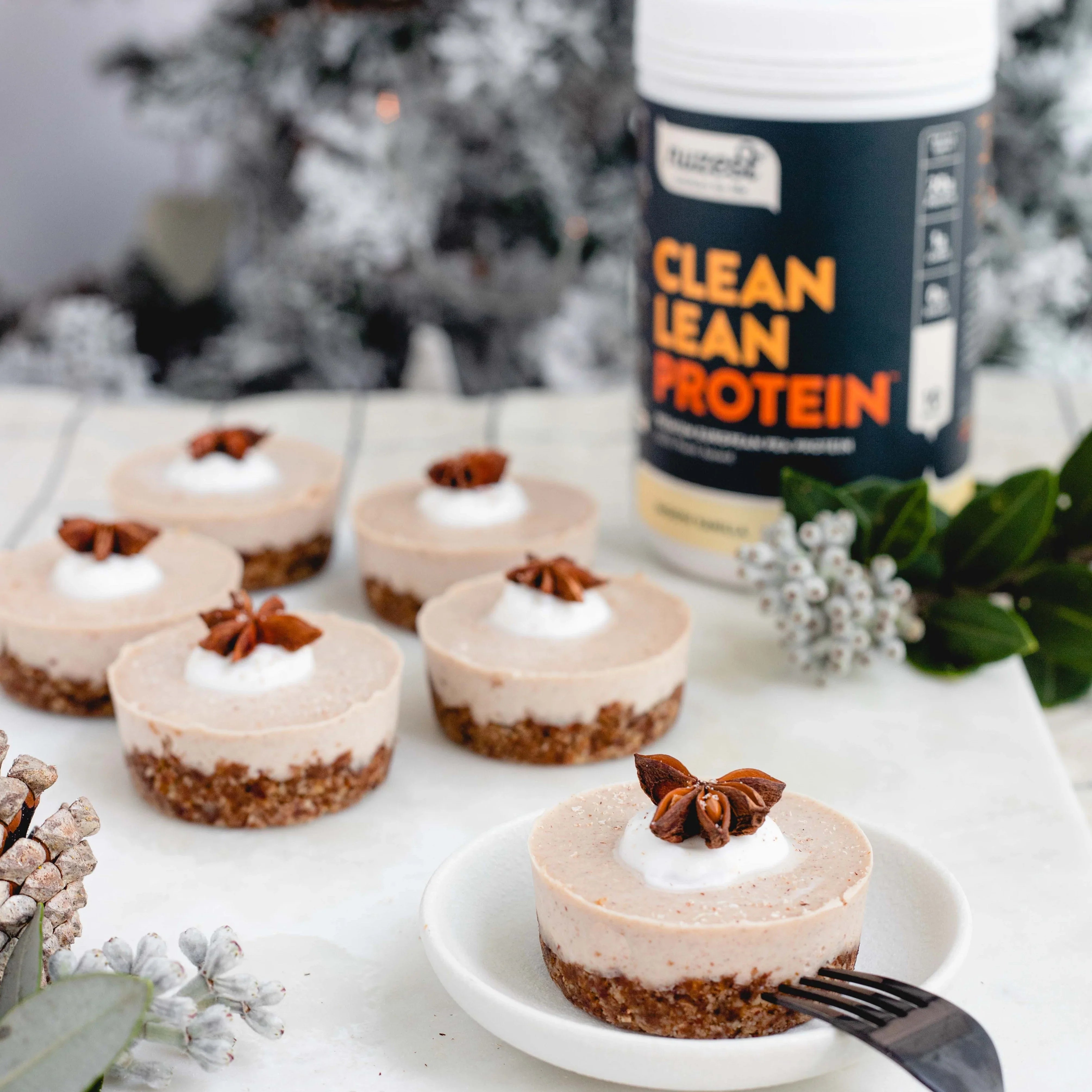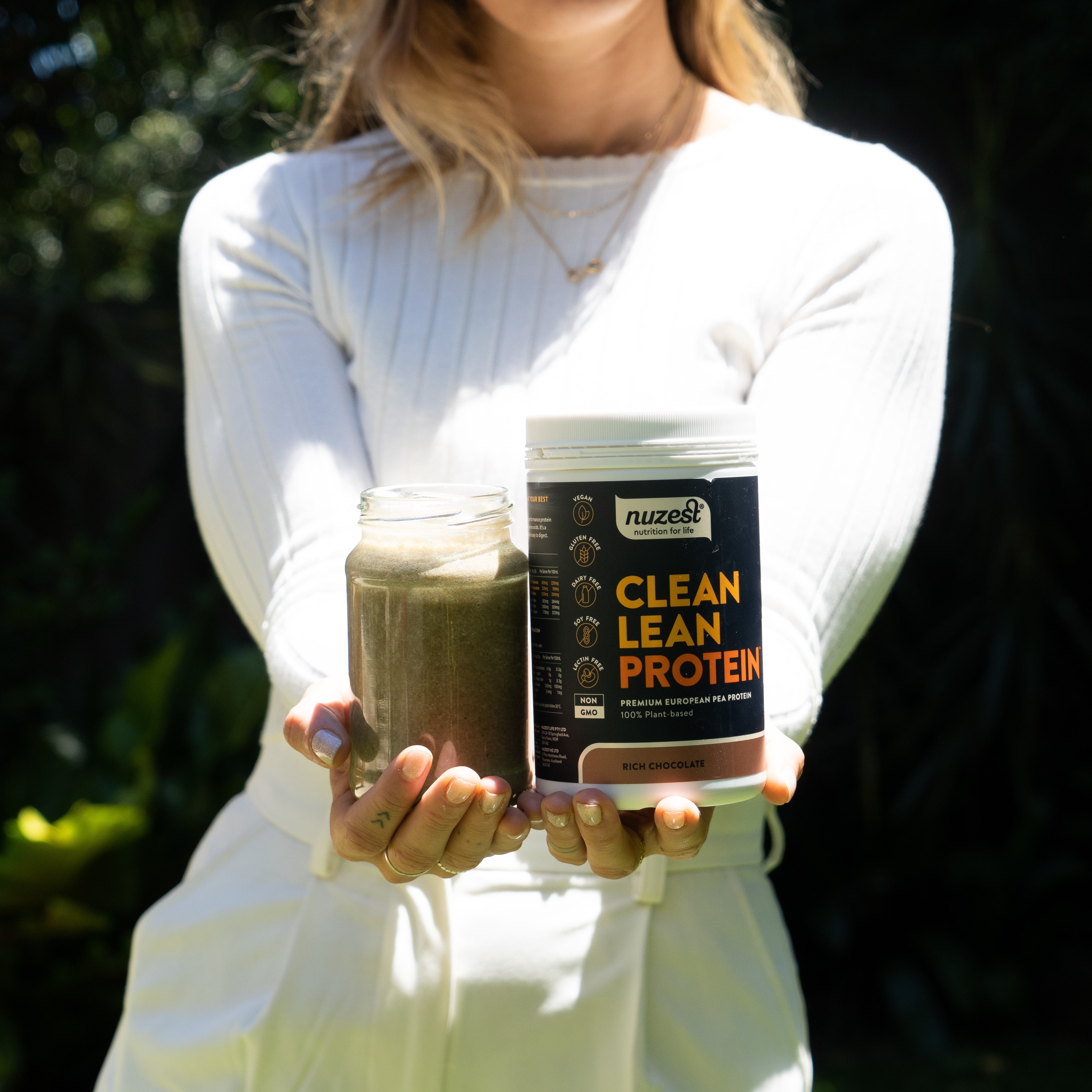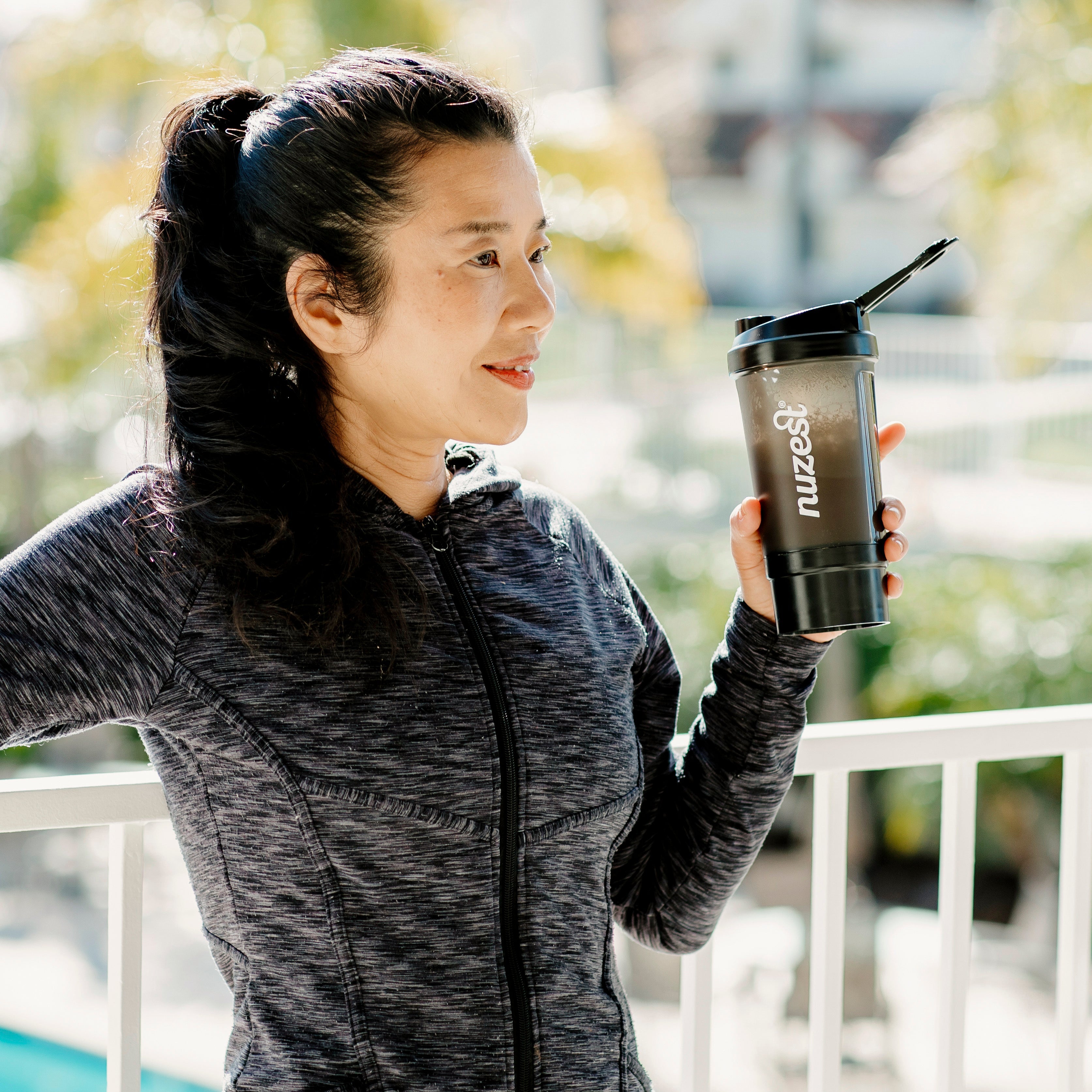TITLE: How Inflammation Works: Skin Conditions
AUTHOR: Eleanor Good (Student Nutritionist)
There are a wide variety of inflammatory skin conditions that can be characterised as either acute (short-lasting) or chronic (long-lasting). These range from conditions such as acute contact dermatitis which causes the occasional rash, to more chronic diseases such as acne, rosacea, eczema and psoriasis.
Acute skin conditions such as contact dermatitis will usually last anywhere from a couple of days up to two weeks and are usually the result of coming into contact with an undiagnosed allergen.
Inflammatory skin conditions can result in discomfort, frustration and embarrassment among sufferers. Read on to learn more about some common inflammatory skin conditions and nutrients that are beneficial for our overall skin health.
The role of inflammation in common skin conditions
Rosacea is an inflammatory response that can cause blushing on the cheeks, chin, forehead and nose, swollen cheeks and nose, pustules, burning, rash and visible or enlarged capillaries[i]. Research supports the theory that the symptoms associated with this condition are a chronic response to an increased presence of a mite called Demodex folliculorum, - a microscopic arachnid that commonly inhabits the hair follicles on the skin of mammals[ii], particularly around the face, however usually results in no abnormal side effects when present in common levels[iii],[iv].
Eczema refers to a group of inflammatory skin conditions that result in a red, dry and easily irritated rash following contact with a particular trigger such as jewellery, perfume, plants or fabrics, that stimulate the response[v]. Atopic Dermatitis falls under this group and refers specifically to the response as a result of an allergic reaction caused by a defect in skin barrier function and immune dysregulation when exposed to an environmental or infectious toxin.[vi]
Psoriasis is an immune-mediated condition characterised by inflammatory thick, red, scaly, itchy and dry patches of skin to form over the surface of the body that can be triggered by stress, illness/infection or cold weather. During a flare, vasodilation allows for an influx of inflammatory factors and white blood cells and there is a significant increase in the production of keratinocytes resulting in patchy appearance on the skin which is actually keratinocytes that have aged prematurely and flake off the skin in silver scales. The systemic inflammatory processes involved in psoriasis are associated with the co-morbidities that often present with the condition and are also inflammatory in nature, including an increased risk of cardiovascular disease and stroke[vii].
Acne affects almost 80% of young adults, often persisting well into adulthood, and can result in scarring and hyperpigmentation. Inflammatory acne lesions occur when the pores of our skin become blocked with oil, dead skin, or bacteria. Each pore on your skin is the opening to a follicle, which is made up of a single hair and a sebaceous (oil) gland. Normally, the oil gland will release sebum (oil), which will travel up the hair, out of the pore, and onto your skin, thus helping to keep it soft and hydrated. However, in people with acne this normal lubrication process is impaired resulting in the oil being unable to escape the pore. This results in a clogged pore which forms a pimple.
The acne lesions themselves were once thought to be the only inflammatory related aspect of this skin condition, however emerging data has revealed that inflammation actually occurs at all stages of acne lesion development, meaning that acne can be classified as an inflammatory disease.
Does what we eat effect the health of our skin?
The health of our skin reflects many things, such as diet, genetics, sunlight, environmental and occupational exposure, medical conditions, medications, stress and certain lifestyle choices. Interestingly (and thankfully), nutrition has historically been one of the earliest and most important factors for improving skin health8.
When it comes to nutrition, a diet that is packed with essential nutrients, and provides sufficient energy, protein and essential fats appears to be at the foundation. Many nutrients have been shown to improve skin health, some of them include:
- Omega 3 fats - considered crucial for healthy skin. Dry or flaky skin is often a sign of low omega-3 fat intake, while omega-3 fats might also help to reduce the incidence of skin cancers9.
- Vitamin A – both dietary and topical vitamin A has been clinically shown to improve photoaged skin by increasing smoothness and decreasing fine wrinkles and hyperpigmentation.10
- Vitamin C - vital for collagen synthesis and is found in both the upper and deeper layers of the skin. Its antioxidant activity helps with wound healing and can help protect against damage from UV light.11
- Zinc – which might improve acne and dermatitis.12
Combination supplements that include a variety of ingredients, such as collagen (or collagen-supporting vegan nutrients), vitamin C, vitamin E, biotin, zinc, grape seed and rosehip extracts, silica and marine nutrients (i.e. kelp or marine algae) have also demonstrated benefits to skin hydration, wrinkles and other measures of skin health13-16.
Skin health is a reflection of internal health, so it’s important to ensure that you are consuming a high-quality, varied and wholesome diet that supports all body systems. Bridging the gaps in your diet with Good Green Vitality is one way to ensure you are getting the top up you need in one daily serve of many of these important skin health ingredients. Good Green Vitality also has the added benefit of nutrients that support gut health and your body’s natural detoxification pathways, that all play a critical part in your overall skin health.
To learn more about the role of inflammation in different cardiovascular, autoimmune, neural and endocrine conditions, continue reading our series by student nutritionist Eleanor Good, How Inflammation Works: Cardiovascular Conditions
To skip the rest of this series and learn how to fight inflammation with food, read our article from Registered Dietitian, Andy de Santis, on the foods he recommends to combat inflammation.
The information provided in this article is intended for educational purposes only and is general advice. It should not, nor is it intended to be, relied on as a substitute for individual medical advice or care. If the contents of this, or any other of the blogs in this series raises any concerns or questions regarding your health, please consult a qualified healthcare practitioner.
References
1 Rivero, A. L., & Whitfeld, M. (2018). An update on the treatment of rosacea. Australian prescriber, 41(1), 20–24. https://doi.org/10.18773/austprescr.2018.004
2 Foley, R., Kelly, P., Gatault, S. and Powell, F. (2020), Demodex : a skin resident in man and his best friend. J Eur Acad Dermatol Venereol. doi:10.1111/jdv.16461
3 Gonzalez-Hinojosa, D., Jaime-Villalonga, A., Aguilar-Montes, G., & Lammoglia-Ordiales, L. (2018). Demodex and rosacea: Is there a relationship? Indian journal of ophthalmology, 66(1), 36–38. https://doi.org/10.4103/ijo.IJO_514_17
4 Kubanov, A., Gallyamova, Y., & Kravchenko, A. (2019). Clinical picture, diagnosis and treatment of rosacea, complicated by Demodex mites. Dermatology reports, 11(1), 7675. https://doi.org/10.4081/dr.2019.7675
5 Lee, J. H., Son, S. W., & Cho, S. H. (2016). A Comprehensive Review of the Treatment of Atopic Eczema. Allergy, asthma & immunology research, 8(3), 181–190. https://doi.org/10.4168/aair.2016.8.3.181
6 Kapur, S., Watson, W., & Carr, S. (2018). Atopic dermatitis. Allergy, asthma, and clinical immunology : official journal of the Canadian Society of Allergy and Clinical Immunology, 14(2), 52. https://doi.org/10.1186/s13223-018-0281-6
7 Reich, K. (2012). The concept of psoriasis as a systemic inflammation: implications for disease management. J Eur Acad Dermatol Venereol, 26(2), 3‐11. doi:10.1111/j.1468-3083.2011.04410.x
8 Liakou, A. I., Theodorakis, M. J., & Zouboulis, C. C. (2011). Nutritional Clinical Studies in Dermatology. Nutrition and Skin, 209–220. doi:10.1007/978-1-4419-7967-4_14
9 Miura K, Vail A, Chambers D, Hopkins PM, Ferguson L, Grant M, et al. Omega-3 fatty acid supplement skin cancer prophylaxis in lung transplant recipients: A randomized, controlled pilot trial. The Journal of Heart and Lung Transplantation. 2019;38(1):59-65.
- Linus Pauling Institute. Vitamin A and skin health. Retrieved from https://lpi.oregonstate.edu/mic/health-disease/skin-health/vitamin-A
- Linus Pauling Institute. Vitamin C and skin health. https://lpi.oregonstate.edu/mic/health-disease/skin-health/vitamin-C
- Dhaliwal S, Nguyen M, Vaughn AR, Notay M, Chambers CJ, Sivamani RK. Effects of Zinc Supplementation on Inflammatory Skin Diseases: A Systematic Review of the Clinical Evidence. American Journal of Clinical Dermatology. 2020;21(1):21-39.
- A Dermonutrient Containing Special Collagen Peptides Improves Skin Structure and Function: A Randomized, Placebo-Controlled, Triple-Blind Trial Using Confocal Laser Scanning Microscopy on the Cosmetic Effects and Tolerance of a Drinkable Collagen Supplement. Journal of medicinal food. 2020;23(2):147-52.
- Choi SY, Ko EJ, Lee YH, Kim BG, Shin HJ, Seo DB, et al. Effects of collagen tripeptide supplement on skin properties: A prospective, randomized, controlled study. Journal of Cosmetic and Laser Therapy. 2014;16(3):132-7.
- Birnbaum JE, McDaniel DH, Hickman J, Dispensa L, Le Moigne A, Buchner L. A multicenter, placebo-controlled, double-blind clinical trial assessing the effects of a multicomponent nutritional supplement for treating photoaged skin in healthy women. Journal of Cosmetic Dermatology. 2017;16(1):120-31.
- Stephens TJ, Sigler ML, Hino PD, Moigne AL, Dispensa L. A Randomized, Double-blind, Placebo-controlled Clinical Trial Evaluating an Oral Anti-aging Skin Care Supplement for Treating Photodamaged Skin. J Clin Aesthet Dermatol. 2016;9(4):25-32.
1 Rivero, A. L., & Whitfeld, M. (2018). An update on the treatment of rosacea. Australian prescriber, 41(1), 20–24. https://doi.org/10.18773/austprescr.2018.004
2 Foley, R., Kelly, P., Gatault, S. and Powell, F. (2020), Demodex : a skin resident in man and his best friend. J Eur Acad Dermatol Venereol. doi:10.1111/jdv.16461
3 Gonzalez-Hinojosa, D., Jaime-Villalonga, A., Aguilar-Montes, G., & Lammoglia-Ordiales, L. (2018). Demodex and rosacea: Is there a relationship? Indian journal of ophthalmology, 66(1), 36–38. https://doi.org/10.4103/ijo.IJO_514_17
4 Kubanov, A., Gallyamova, Y., & Kravchenko, A. (2019). Clinical picture, diagnosis and treatment of rosacea, complicated by Demodex mites. Dermatology reports, 11(1), 7675. https://doi.org/10.4081/dr.2019.7675
5 Lee, J. H., Son, S. W., & Cho, S. H. (2016). A Comprehensive Review of the Treatment of Atopic Eczema. Allergy, asthma & immunology research, 8(3), 181–190. https://doi.org/10.4168/aair.2016.8.3.181
6 Kapur, S., Watson, W., & Carr, S. (2018). Atopic dermatitis. Allergy, asthma, and clinical immunology : official journal of the Canadian Society of Allergy and Clinical Immunology, 14(2), 52. https://doi.org/10.1186/s13223-018-0281-6
7 Reich, K. (2012). The concept of psoriasis as a systemic inflammation: implications for disease management. J Eur Acad Dermatol Venereol, 26(2), 3‐11. doi:10.1111/j.1468-3083.2011.04410.x
8 Liakou, A. I., Theodorakis, M. J., & Zouboulis, C. C. (2011). Nutritional Clinical Studies in Dermatology. Nutrition and Skin, 209–220. doi:10.1007/978-1-4419-7967-4_14
9 Miura K, Vail A, Chambers D, Hopkins PM, Ferguson L, Grant M, et al. Omega-3 fatty acid supplement skin cancer prophylaxis in lung transplant recipients: A randomized, controlled pilot trial. The Journal of Heart and Lung Transplantation. 2019;38(1):59-65.
- Linus Pauling Institute. Vitamin A and skin health. Retrieved from https://lpi.oregonstate.edu/mic/health-disease/skin-health/vitamin-A
- Linus Pauling Institute. Vitamin C and skin health. https://lpi.oregonstate.edu/mic/health-disease/skin-health/vitamin-C
- Dhaliwal S, Nguyen M, Vaughn AR, Notay M, Chambers CJ, Sivamani RK. Effects of Zinc Supplementation on Inflammatory Skin Diseases: A Systematic Review of the Clinical Evidence. American Journal of Clinical Dermatology. 2020;21(1):21-39.
- A Dermonutrient Containing Special Collagen Peptides Improves Skin Structure and Function: A Randomized, Placebo-Controlled, Triple-Blind Trial Using Confocal Laser Scanning Microscopy on the Cosmetic Effects and Tolerance of a Drinkable Collagen Supplement. Journal of medicinal food. 2020;23(2):147-52.
- Choi SY, Ko EJ, Lee YH, Kim BG, Shin HJ, Seo DB, et al. Effects of collagen tripeptide supplement on skin properties: A prospective, randomized, controlled study. Journal of Cosmetic and Laser Therapy. 2014;16(3):132-7.
- Birnbaum JE, McDaniel DH, Hickman J, Dispensa L, Le Moigne A, Buchner L. A multicenter, placebo-controlled, double-blind clinical trial assessing the effects of a multicomponent nutritional supplement for treating photoaged skin in healthy women. Journal of Cosmetic Dermatology. 2017;16(1):120-31.
- Stephens TJ, Sigler ML, Hino PD, Moigne AL, Dispensa L. A Randomized, Double-blind, Placebo-controlled Clinical Trial Evaluating an Oral Anti-aging Skin Care Supplement for Treating Photodamaged Skin. J Clin Aesthet Dermatol. 2016;9(4):25-32.


